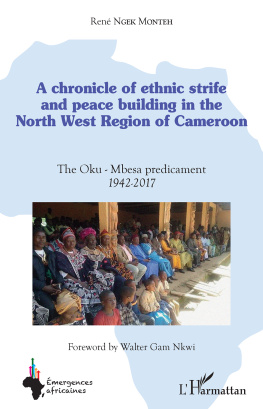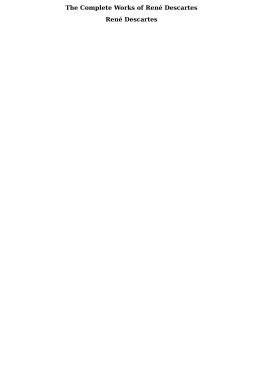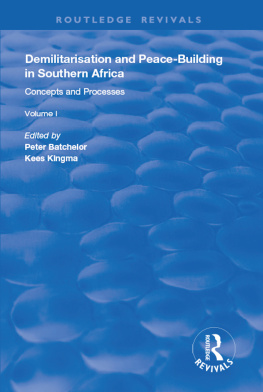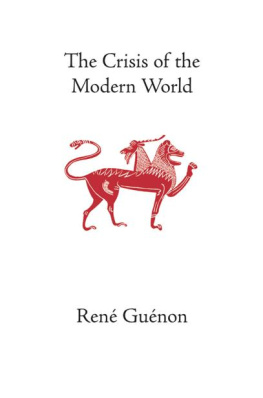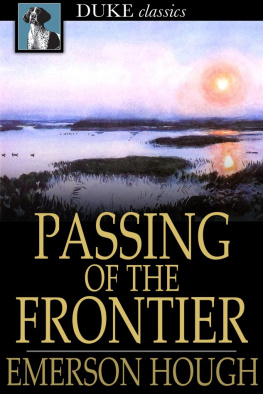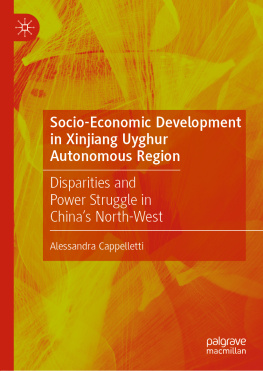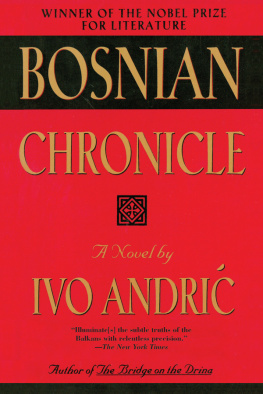Back cover
mergences Africaines
Dirige par Magloire K EDE ONANA
La collection MERGENCES AFRICAINES se propose de renverser des certitudes faciles. Nous sommes convaincus que lAfrique, longtemps considre comme en retrait, souvre au monde, et est plus que jamais au cur des enjeux. Son Histoire ne doit plus scrire ailleurs, par des continents eux-mmes en crise de modles proposer/imposer.
Une nouvelle gnration trs entreprenante dAfricains et dAfricanistes existe aujourdhui, qui problmatise et rcrit lHistoire du continent dans toutes ses facettes, et par une approche multidisciplinaire. Il sagit de dvoiler une Afrique des Bonnes Nouvelles : celle qui, parce que plus ouverte au monde, prsente tous ses atouts dmergence.
Dernire arrive dans la comptition mondiale, lAfrique est capable dapporter un lan diffrent la mondialisation grce son devenir, qui est subordonn son tre.
Dj parus
Aminata TOUR , La justice sngalaise et les crimes internationaux au Tchad 1982-1990. Contribution africaine lavance du Droit Pnal International , 2020
Pr Roger Bernard ONOMO ETABA, Dr Batrice BELLINI,
Dr Magloire KEDE ONANA, Michael BUECHI, Klber BIBOUM, Cameroun: normes et scurit pour un tourisme durable. Actes du Forum Mercatour 2018 , 2020
Ren NGEK MONTEH, Solomon NSAH KEKEISEN, Challenges of non-governmental organisations (NGOs) in conflict resolution in the North West Region of Cameroon, 1990-2010, 2020.
Luc NDJODO, Lexercice du ministre public la juridiction des comptes au Cameroun , 2020
Jeannot MVE BELINGA, Pratique de la mdecine traditionnelle et changements climatiques au Cameroun, Consquences sur les soins base de plantes mdicinales, 1924-2017 , 2019.
Title
Ren Ngek Monteh
A CHRONICLE OF ETHNIC STRIFE
AND PEACE BUILDING
IN THE NORTH WEST REGION OF CAMEROON
The Oku Mbesa predicament
1942-2017
Foreword by Walter Gam Nkwi
Copyright
LHarmattan, 2021
5-7, rue de lcole-Polytechnique; 75005 Paris
http://www.editions-harmattan.fr
EAN Epub: 978-2-336-92009-2
DEDICATION
To
Our beloved Oku and Mbesa Peace Advocates
This Book is
Affectionately Dedicated
ACKNOWLEDGEMENTS
While Thanking God Almighty for sustained blessings and inspiration keeping us in good health throughout our research period, the realization of this work will not have been possible without the valuable contributions made by some reliable persons, religious, traditional and research institutions within and out of the Oku-Mbesa communities. We highly thank and recognize early authors on similar work, whoever participated in this research and those who were committed to provide freely their information and experiences.
Much appreciation goes to the traditional rulers of these communities for their constant rich moral and material support. Besides them, our acknowledgement goes to Professors Bongfen Chem-Langh (of blessed memory) and Verkijika G. Fanso who supervised the base of this work in form of a traditional diplomacy in the Tikar milieu. Our regards to Professors Willibroad Dze-Ngwa, Walters Gam Nkwi, Mark Bolack Funteh and Nixon Takor Kahjum who read an earlier draft of this work and suggested important improvements. The author also expresses his gratitude to Dr. Patrick Belibi Enama with his team for English literacy input and support.
We are immensely grateful for their time and intellectual generosity. Nevertheless, all interpretations and conclusions reached here are, of course, the authors responsibility.
Ren Ngek Monteh
TABLE OF CONTENTS
FOREWORD
You, the dedicated reader, have you ever thought of Conflict in the most remote part of Africa? I guess not. Yet this is what Ren Ngek Monteh suggests we should do. He is right. You might object that we need only to focus on conflicts between countries in Africa and the world at large. Are you sure? A conflict is a conflict and needs historical analysis to appreciate and understand its casus belli. Conflicts have causes, they have a course and ramifications and/or consequences. Wont you agree that conflicts no matter how minor they can be, produces effects largely unforeseen? Cant you see that they could be having political, economic and social ramifications?
Why should people who share the same ethnic affiliations, language, and socio-cultural affiliations fight over a piece of land for over 50 years? So, yes, Ngek Monteh is right: People have their differences and ambitions. Conflicts and wars are fought by people and as people, they need to be expansionist in nature because of their insatiable appetite. The Bamenda Grassfields appears to have made them like this. The increasing population of this region over time and space with the scarcity of arable land coupled with its perennial expansionist proclivities have constantly made people step on each others toes over a fertile piece of land, consequently leading to conflict.
Most people will say that such a conflict only concern the ordinary people or subalterns with their daily life, that they do not shape different lifestyles, identities, subjectivities or that those type of conflicts does not affect the region. Wrong! Says Ngek Montehs manuscript which has proven such readers wrong. He has probed into the minds of people who are often out of the corridors of power in historical reconstruction-ordinary people. The war fought with Dane guns and bow and arrows only show the sophistication of the African indigenous technology which has been neglected for a very long time.
Although Ngek does not make any reference to any theory I would say that his book is quite closer to Foucauldian. There are many contemporary theories that explain the nature of disagreements, frictions, discomfort, tensions, political, religious, ideological and economic differences among social classes, gender, age groups, the states, and regional and international organisations. These theories explain the origins of conflicts, their causes and manifestations, their trajectories and their social, cultural and economic implications at the individual, group, and country, regional and international levels. The location of the conflict culturally, sociologically, economically and politically through a theoretical analytical framework is likely to inform us how the conflict might be resolved. Thus, the nature of the explanations would provide knowledge and embody assumptions about how to proceed in changing a conflicting situation. Although Conflict is not a central concept for the French philosopher theorist, Michel Foucault; it is rather the concept of power that is at the root of Foucaults thinking, and which indirectly shapes his view on conflicts. Foucault argues that power-struggles are inevitable, they condition and form truth and all human relations leading to conflict.
The conflict did not begin with the Oku-Mbesa nor did it only start in the Bamenda Grassfields in the 1940s as Ngeks book suggests. He knows that this conflict has been going on for a very long time amongst people who have experienced change, they were communicating and exchanging information and knowledge and having cultural similarities. They had their own traditional values and etiquettes of behaviour. Let me add one more example to those given by the author that will push us even further back into the past, beyond the threshold of 1940 which he takes as a benchmark or datum point in his book. Anytime as from 1600 and beyond, Oku and Mbesa farmers, like other Grassfields people, began experiencing with new cultigens that came from Latin America, especially groundnuts, tobacco, avocados, mangoes and certain kinds of beans. Later on, around the middle of the 17th century, they adopted maize. Around the turn of the 20th century, they started cultivating even more American cultigens: manioc, tomato, potatoes, coffee and in the 21 st century even cocoa. With each new crop came assorted bodies of knowledge on their cultivation, the way they could be used, interspersed or not with other plants, cooked, and smoked in the case of tobacco. During the British colonial administration, there was the active demarcation of boundaries and arbitrarily too. So the people of Oku and Mbesa who had lived peacefully for close three centuries were bifurcated with an artificial boundary. Here is the beginning of the conflict in which the reader is presented here the reader and any interested person to read and understand.

